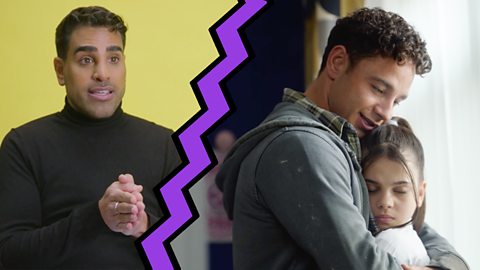Just how accurate are TV shows when it comes to the ups and downs of childhood?
A lot has changed since 2002, when The Story of Tracy Beaker debuted on CТщЖЙдМХФ, particularly our attitude to mental health, emotions and anxiety, but according to , 49% of parents still felt that there was stigma around their child having a mental health problem.
To see how stigma is represented in the very first episode of The Story of Tracy Beaker, we enlisted the help of presenter and NHS clinician Dr Ranj. Let's see what he has to sayтІ
Dr Ranj: Hi everyone! Iтm Dr Ranj and this is Dr Ranj Reacts. In this film, weтre going to be checking out Series 1, Episode 1 of all-time classic, The Story of Tracy Beaker. Lets go.
CLIP ONE
Mike: Hey Lou, Tracyтs upstairs. Gonna say hello?
Louise: Why does everyone keep on going on about Tracy?
Mike: Sorry. I thought you two were mates?
Louise: So did I until she left and forgot all about me.
Dr Ranj: What this perfectly shows is the importance of relationships as a child. Our emotional development when weтre growing up is forming these connections with other people - friends, family т and being able to deal with it when they donтt necessarily work out or they donтt exist anymore.
Dr Ranj: My friends from university are like a second family to me, whereas my friends from primary school, junior school т Iтm not really in touch with but at the time, they were my entire world. Yeah, remind your kids of that т that thatтs perfectly normal and itтs okay. Youтre going to be fine, youтre still going to have friends.
CLIP TWO
Tracy: Donтt see why she made a fuss. Heтs nothing special.
Peter: Iтd rather have a dad like that who visited, than no-one at all.
Dr Ranj: What a lovely thing to say.
Peter: Are you crying?
Tracy: Bog off, Tracy Beaker never cries. Itтs the Dumping Ground dust.
Dr Ranj: The reason Tracyтs crying here, is that she wants to communicate an emotion, she really does, and she fobs it off straight away when asked about it directly. And we do that for lots of reasons. Firstly, we do that because weтre trying to protect ourselves from how those feelings feel, or we may even be embarrassed about expressing ourselves.
Dr Ranj: If youтre a parent or carer that wants to access and address those sorts of difficult feelings with your little one, remind them that a lot of these difficult feelings are actually transient т they come and go. And going through them is normal, but by processing the difficult ones means that next time, when you encounter a similar situation, youтll be better equipped at dealing with it.
CLIP THREE
Tracy: SORRY! Okay?
Jenny: Tracy!
Tracy: What? I apologised didnтt I?
Jenny: Enough to make grown men tremble three streets away! Now, youтre going to apologise and youтre going to do it so that everybody knows that you mean it!
Dr Ranj: Fair point.
Dr Ranj: Tracy wants someone to notice how sheтs feeling. She wants to talk to someone and the only way she feels she can express that т because she may not have any other tools to do so т is by being angry and shouting.
Dr Ranj: So when I was growing up, if I acted out, my parents would often not have the right reaction to that, because they didnтt know any better. But we know better now. If your child or young person is doing that just take a breath, and then think, тRight, okay, whatтs going on here, whatтs a possible reason behind it, and how can I respond to this in a bit more of a constructive way?т Rather than just shouting back at them.
Dr Ranj: We all love a bit of Tracy Beaker, donтt we? Thatтs it for Dr Ranj Reacts, and Iтll see you next time!
Friendships
Tracy Beaker is returning to The Dumping Ground, but her old friend Louise wants nothing to do with her. Louise is hurt after Tracy left with a new foster family and "forgot all about [her]".
This reminds Dr Ranj of the importance of friendships when you're a child and the emotional development we all go through when those friendships falter or disappear.
My friends from primary school, junior school т Iтm not really in touch with, but at the time, they were my entire world.
т Dr Ranj
His advice for parents: it might be a difficult conversation, but try to remind your child that it is normal and okay for friendships to end and it's something that happens to everyone at some point in life.
To help your child build their resilience, take a look at this article with psychologist Dr Sandi Mann.
Crying or hay fever?
After the disappointment of her most recent foster family, Tracy now has to watch her nemesis, Justine Littlewood, spending time with her dad in the Dumping Ground garden. She's crying, but when Peter asks if she's okay, she dismisses it as hay fever - "It's the Dumping Ground dust."
Dr Ranj sees Tracy desperately trying to communicate an emotion, but at the same time, "weтre trying to protect ourselves from how those feelings feel, or we may even be embarrassed about expressing ourselves."
Ranj also offers some support for parents and carers who want to access and address tricky emotions with their child - "Remind them that a lot of these difficult feelings are transient т they come and go. And going through them is normal, but by processing the difficult ones means that next time, when you encounter a similar situation, youтll be better equipped at dealing with it."
If you want to have an honest conversation with your child about their emotions or mental health, this Parents' Toolkit article has lots of advice to help you help your child to open up.
Aggressive apologies
Jenny, head careworker at The Dumping Ground, makes Tracy say sorry to Justine Littlewood for breaking her clock. This is a difficult situation for Tracy, as she doesn't particularly want to say sorry, so she settles for yelling apology - "SORRY! OKAY?" - and a hasty exit.
In this aggression, Ranj recognises a child who just wants someone to notice how they're feeling, perhaps without having the right tools to do so.
When I was growing up, if I acted out, my parents would often not have the right reaction to that, because they didnтt know any better. But we know better now.
т Dr Ranj
His advice for parents and carers, who might be in a situation where their child is angry, shouting or being aggressive, is to take a breath, try to consider their child's motives for acting out and find a constructive way to communicate or de-escalate the issue.
If your child is lashing out after school, take a look at our article on after-school restraint collapse, for support.

The Story of Tracy Beaker is available to watch on ТщЖЙдМХФ iPlayer

More from ТщЖЙдМХФ Bitesize Parents' ToolkitтІ
Parents' Toolkit
Fun activities, real-life stories, wellbeing support and loads of helpful advice - we're here for you and your child.

Child mental health: Parents have their say
How do parents feel about mental health in 2022? Read about the results of our survey, in partnership with Netmums, here...
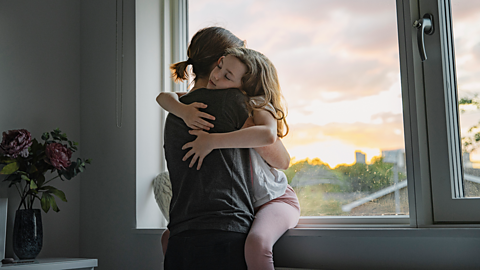
How to tackle anxiety with Dr Anna
Calming techniques to help parents and children manage their anxiety.
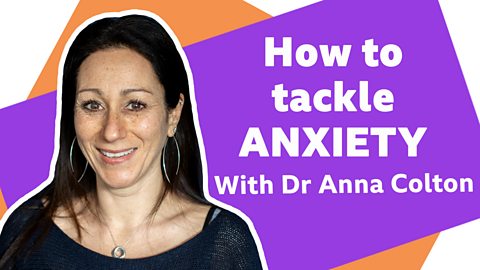
One in four children are bullied - what can parents do?
Psychologist Anjula Mutanda outlines how parents can spot signs of bullying, improve resilience and build confidence.
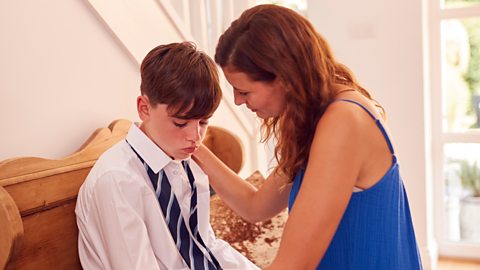
Dr Ranj Reacts to Never Ever Has My Child
We showed Dr Ranj some films from our intergenerational 'Never Ever...' series. He reacts to the films and offers advice to parents around mental health stigma.
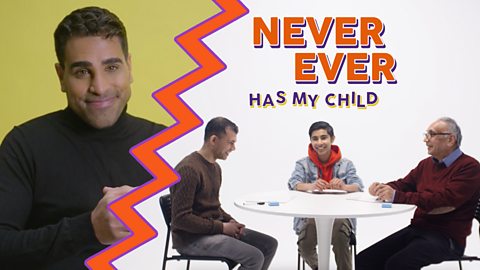
Dr Ranj Reacts to Waterloo Road
We played Dr Ranj some clips from TV drama Waterloo Road - he reacts to themes in the episode that reflect some of the mental health issues in schools today.
